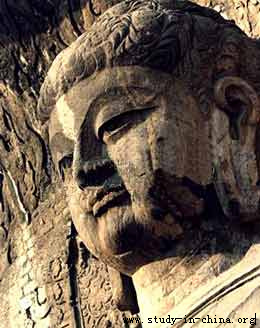| Home > China Feature |
Wuxia, a Popular Culture for Most Chinese-Speaking Communities
Wuxia (武侠) is a broad genre of Chinese fiction that concerns itself with martial arts adventures set primarily in ancient China. Although traditionally a literary art form, it is now also found in art, comics, films, games, television, theatre, and other media. Wuxia forms a large part of popular culture for most Chinese-speaking communities around the world. The word "wuxia" is a compound word composed from the words xia (俠, "honorable", "chivalrous"), which is the philosophy of the Chinese knight-errant, and wu (武, "martial", "military"), from the Chinese term wushu (武術, "martial arts" or "kungfu"). A martial artist who follows the code of xia is often referred to as a "swordsman" in works of wuxia, although he may not necessarily wield a sword. He is also sometimes called a xiake (俠客, lit: "follower of xia") or yóuxiá (游俠, "wandering xia"). The heroes in Chinese wuxia do not usually serve a lord, wield military power or belong to the aristocratic class. They are often from the lower social classes in ancient Chinese society. Wuxia heroes are usually bound by a code of martial chivalry, that requires them to right wrongs, especially when the helpless are oppressed. The wuxia hero fought for righteousness, typically, seeking to remove an oppressor, or to bring retribution for past wrong-doing. The Chinese xia traditions are similar to those of the Japanese samurai's bushido, the chivalry of the Western European knights and the gunslingers of America's Westerns.
Art
 more
moreChina Beijing International Diet ...
Recently, The hit CCTV documentary, A Bite of China, shown at 10:40 ...

Exhibition of Ancient Chinese Jad...
At least 8,000 years ago, Chinese ancestors discovered a beautiful...

Longmen Grottoes
The Longmen Grottoes, located near Luoyang, Henan Province, are a tr...

Custom
 more
moreWeb Dictionary
Martial Arts
Tai Chi Master Class Held in Moscow
MOSCOW, June 15, 2016 (Xinhua) -- Students learn from Shaolin ...
Celebriting 70 years' efforts in restoring Mogao...
Work is being carried out at the restoration site of cave No 98 a...
Hong Kong Children's Symphony performs in Seattle
Under the theme of Tribute to the Golden Age, a concert featuring a ...





 print
print  email
email  Favorite
Favorite  Transtlate
Transtlate 








